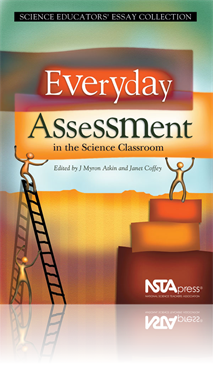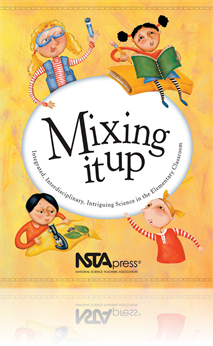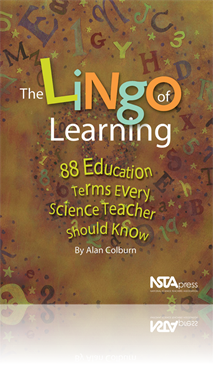All Book Chapters
Book Chapter
Working with Teachers in Assessment-Related Professional Development
Professional development related to everyday classroom interactions can require a shift in the teacher’s priorities in the classroom from a focus on managing activity and behavior to a mind-set of managing learning opportunities. This essay looks c...
Book Chapter
Reconsidering Large-Scale Assessment to Heighten Its Relevance to Learning
In contrast to classroom assessments that can provide immediate feedback in the context of ongoing instruction, large-scale assessments are necessarily broader survey instruments, administered once-per-year and standardized to ensure comparability ac...
Book Chapter
Although this terrific interdisciplinary, cooperative-learning science experience began primarily as a language arts assignment to compare the leadership skills of two fascinating men, it grew to encompass an exploration of ice's properties and taugh...
Book Chapter
At the beginning of the 21st century, education seems dominated by talk about educational outcomes and their assessment. This chapter serves to demystify these topics. This free selection includes the Preface, Table of Contents, an About the Author p...
Book Chapter
This chapter highlights documents such as the National Science Education Standards that were designed to be achievable by all students, no matter their background or characteristics. Project 2061: Science for all Americans and Project 2061: Benchmark...
Book Chapter
The scientific method not only describes inaccurately how science works, but also distorts the meaning of words such as "theory" and "law." A theory, in science, is a widely applicable explanation. A law is a generalization or pattern derived directl...
Book Chapter
General Instructional Approaches
Advocates of STS—science-technology-society—approaches believe that the science curriculum should pay special attention to science-based social issues. They envision K-12 science classes being best when focusing on the boundary between science an...
Book Chapter
This chapter presents several models of instruction from cooperative learning to inquiry-based instruction. It concludes with the 5E Model of instruction, pioneered by the Biological Sciences Curriculum Study (BSCS 1993....
Book Chapter
Pedagogy means teaching and teaching is what teachers do. It's a fancy word with a simple meaning. In reality, the distinction between pedagogy and curriculum can be a bit difficult because what is taught and how it is taught are deeply intertwined. ...
Book Chapter
Assessment, broadly defined, means information gathering. Grading (or evaluating) students is certainly one type of assessment. Tests, portfolios, and lab practicals are all assessment devices. However, teachers assess students in other ways. When te...
Book Chapter
The Association for Supervision and Curriculum Development (2002) defines “diversity” in this way: “In education, discussions about diversity involve recognizing a variety of student needs including those of ethnicity, language, socioeconomic c...
Book Chapter
As is the case with the other chapters in this book, each entry in this chapter should stand on its own. However, more than in other chapters, the ideas presented in this chapter tend to build on each other. Ideas that began with Piaget were later ch...
Book Chapter
This chapter presents research concepts featuring qualitative, quantitative, and action research. Qualitative research generally involves a researcher combining observation, interview, and analysis of various documents. Quantitative research represen...
Book Chapter
This chapter discusses teacher education from the preservice teachers—the period when they are learning to teach as undergraduate or graduate students—to induction—the period when they are making the transition from student teacher to an experi...
Book Chapter
This section offers insights about the uniqueness of teaching in a two-year college. Hello! Is Anybody Out There? explores one commonality that exists among many two-year colleges—isolation, including the social, financial, and political isolation ...





